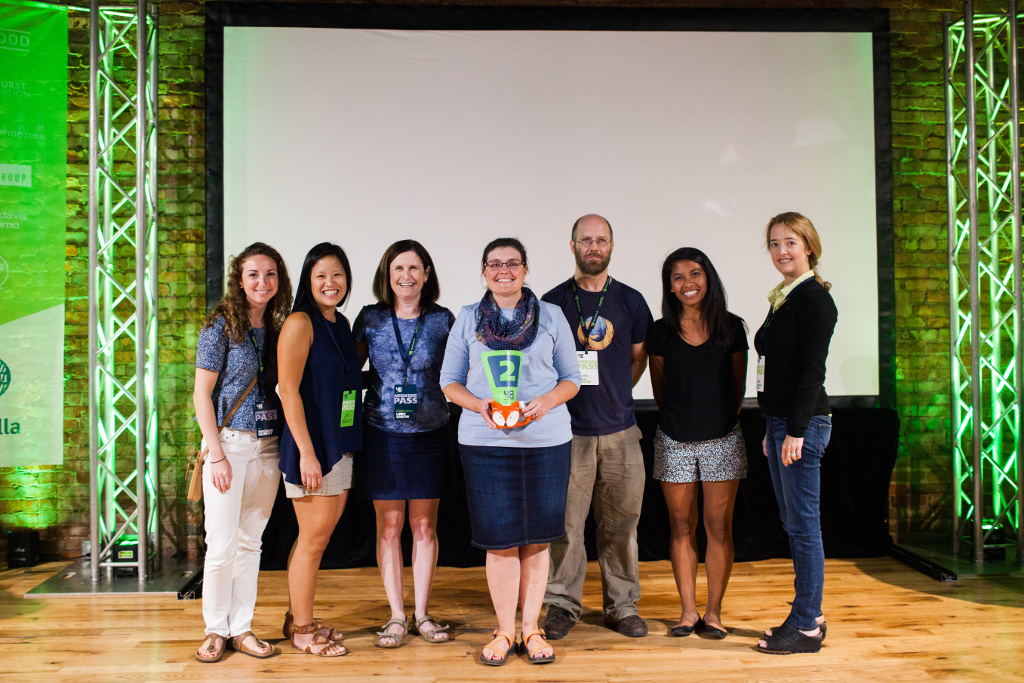48 Hours of Hacking in Chattanooga
I spent this past weekend in Chattanooga, Tennesse, in a whirlwind of planning, prototyping and generally collaborating on a pitch for the 48 Hour Launch event. I was invited to attend as one of several mentors from Mozilla, to help develop product and company ideas from the local community into something clear and compelling in just two days. For more info on the event, go read the wrap-up on Mozilla’s blog. I’m just going to detail some of my personal highlights.
About seven teams were at the kick-off Friday night, each giving an introduction to their concept and what they wanted to achieve over the weekend. After drifting around a bit and listening in to the conversations that emerged afterwards, I gravitated towards the “Inclusive Makerspace” project. Cristol Kapp is a librarian at a local elementary school, and one of the first in the region to set up a functioning makerspace in her library for the kids. But, there’s a problem: some of the students have conditions and disabilities which prevent them getting involved in the makerspace activities. The need for a steady hand, fine motor control skills to manipulate tools - are just 2 barriers that effectively exclude some of these kids from what should be fun, collaborative activities in the space. Cristol clearly felt this deeply, and was accomanied by a colleague - a special education teacher - who was also committed to fixing this. That stood out for me: a clear need expressed again and again at the school, and no doubt echoed at home. And people with the opportunity and drive to find, test, improve and promote a solution. (On the Sunday, this was reinforced again when the school principal visited the hackathon to support Cristol, listen to her plans and give feedback.)
I think I’ll keep this short and devote a separate post to the Inclusive I/O project itself (a renaming and branding that emerged from the weekend) and confine myself to the event here. Friday evening was spent narrowing down both the problem and set of solutions into something properly joined up and actionable. With a million ideas buzzing around all the participants heads, we needed to focus on telling a story with well defined characters, with a clearly defined problem and a solution that demonstrably addresses that problem. Of course, reality is never so simple, but for the purposes of this pitch - and to get this project into gear and actually moving down the road - we had to temporarily remove variables. We wound up Friday evening with a plan - sketched out on the back of a cupcake box (which I didn’t have the presence of mind to photograph) - and a consensus to make it so first thing in the morning.
I was pretty blown away by the level of energy, the collective good will and breadth of expertise that descended on the venue over the weekend. Although each team was ultimately competing for prizes, there was no hesitation in sharing tips or resources, getting each other unstuck or even devoting large chunks of time to contribute skills where they were needed. Over the Saturday and Sunday we divided and conquered - with Tamara and I hacking up a prototype, with the help of some great talent from the community. Meanwhile Cristol was moving efficiently though business planning, with cost and market estimates, branding and strategy, all the while tightening up the story we had started that first evening. By Sunday she had a great slide deck and a clear, concise telling of that story, practiced again and again.

It worked. Inclusive I/O was well received by the panel and awarded 2nd place. This is huge - not only for the cash and other resources it grants - but for the validation of the idea and its originator. And for the problem Cristol saw and its real need of a solution. Thanks to all whose names I either didn’t list, forgot or never learnt who helped out along the way. I hope to stay involved in this project in some capacity; watch this space.